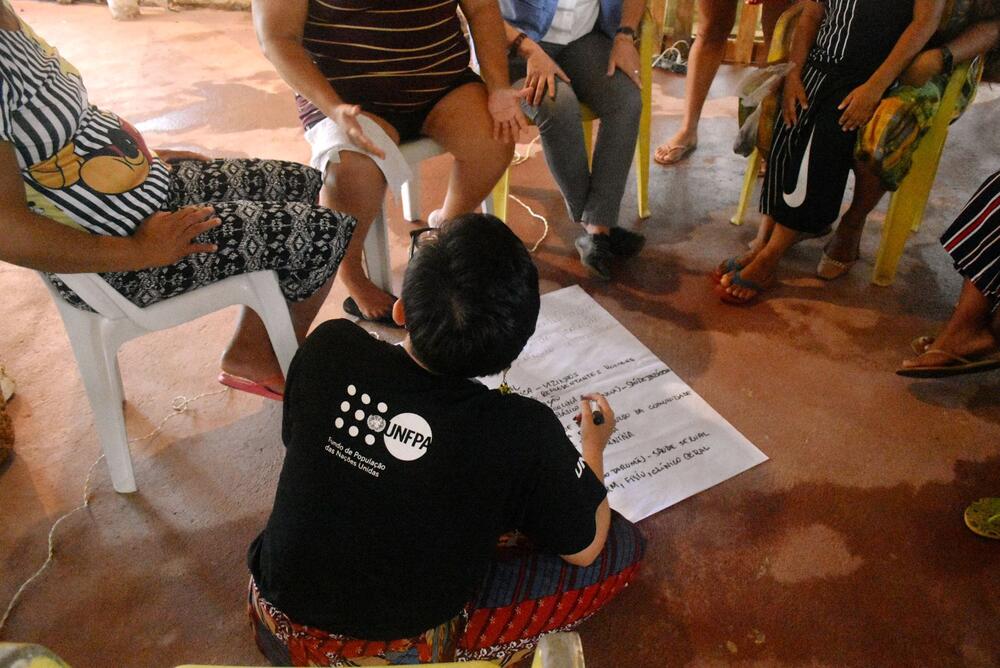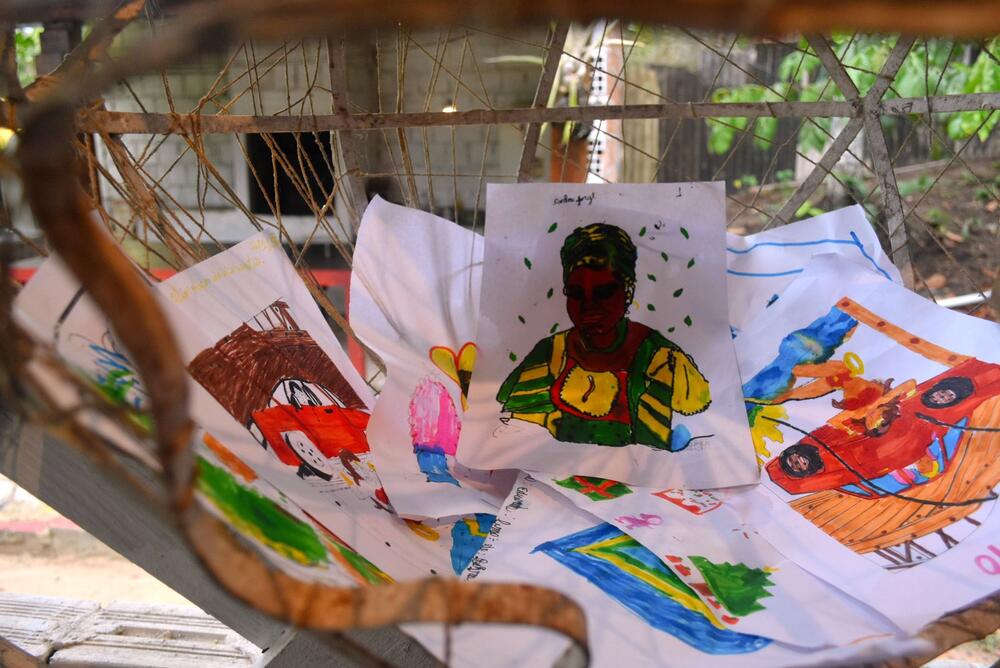News
“Men will no longer do what they want with them”: Indigenous women in Brazil say enough to gender-based violence
- 10 January 2023
News
MANAUS, Brazil – “I saw the change in the women who didn't have courage, who cried with fear in a corner,” said Lutana Ribeiro, from Manaus, the capital of Brazil’s largest state of Amazonas.
Ms. Ribeiro is well known among her community as a staunch defender of human rights – and the only female chief of Parque das Tribos, the first indigenous neighbourhood in Manaus to be officialized by the city government.
A member of the Kokama ethnic group – one of the 35 ethnic groups in Parque das Tribos – Ms. Ribeiro recently facilitated a series of UNFPA workshops for survivors of gender-based violence, which were attended by 50 women from the area. She told UNFPA, “On the first day, few spoke. Today, most of them have spoken.”

The workshops explored different types of violence and explained how to access local social support networks and available legal protection mechanisms. These include the Maria da Penha Law, which changed Brazil’s penal code in 2006 to allow not only for aggressors to be arrested for an act of violence against a woman or girl, but to be detained if the risk of them doing so was deemed a threat to a person’s life.
Rising rates of violence
Sparsely populated and relatively isolated in terms of air, road and sea access, the state of Amazonas faces particular challenges in access to public services, including for sexual and reproductive health support and gender-based violence response.
Ms. Riberio told UNFPA that violence against women is not uncommon in Parque das Tribos, which is home to around 4,500 people. “As a leader, I have experienced many things. Women knock on my door asking for help.”
In 2021, at least one person called the national police emergency number in Brazil every minute to report domestic violence. From 2016 to 2021, the rate of femicide in the country was reported to have increased by over 44 per cent, with one woman dying as a result of femicide every seven hours. In the state of Amazonas, of all women killed intentionally by another person, more than one in five were cases of femicide.
Femicide is defined as the intentional killing of a woman, motivated at least in part by her gender. The most extreme form of gender-based violence, it is often driven by harmful social norms, damaging stereotypes and dangerous gender inequalities.
Ms. Ribeiro described how from the second day of the workshop the women were eager to share their experiences with each other and with the UNFPA team. “After the first lecture, many women felt stronger. The next day, people said ‘enough’ to violence. These men will no longer do what they want with them, because now the women are more empowered.”
“We are not afraid”
The workshops are aimed at training women from indigenous communities to help spread life-saving information among their friends, family and peers. Children also joined in recreational activities so their mothers could attend. “The initiative was very important for us to become increasingly stronger and have this support through dialogue and experience,” said Ms. Ribeiro.
Débora Rodrigues, head of the UNFPA office in Manaus, said, "The workshops created a safe space for women to reflect together on the different forms of violence that affect their daily lives and on coping strategies, which include expanding the supply of and access to services that guarantee protection and rights for all the Parque das Tribos community."

With financial support from the United States Agency for International Development, UNFPA is implementing projects across Brazil’s northern states of Amazonas and Roraima to strengthen the local capacities in preventing and confronting gender-based violence. In 2022, more than 36,000 women and girls benefited from the initiative, with increased access to services such as shelters and safe spaces for survivors, as well as workshops that also engaged men and boys.
Ms. Ribeiro said the participants in the Parque das Tribos workshop felt collectively strengthened, asserting: “We, as indigenous people, are not afraid.”